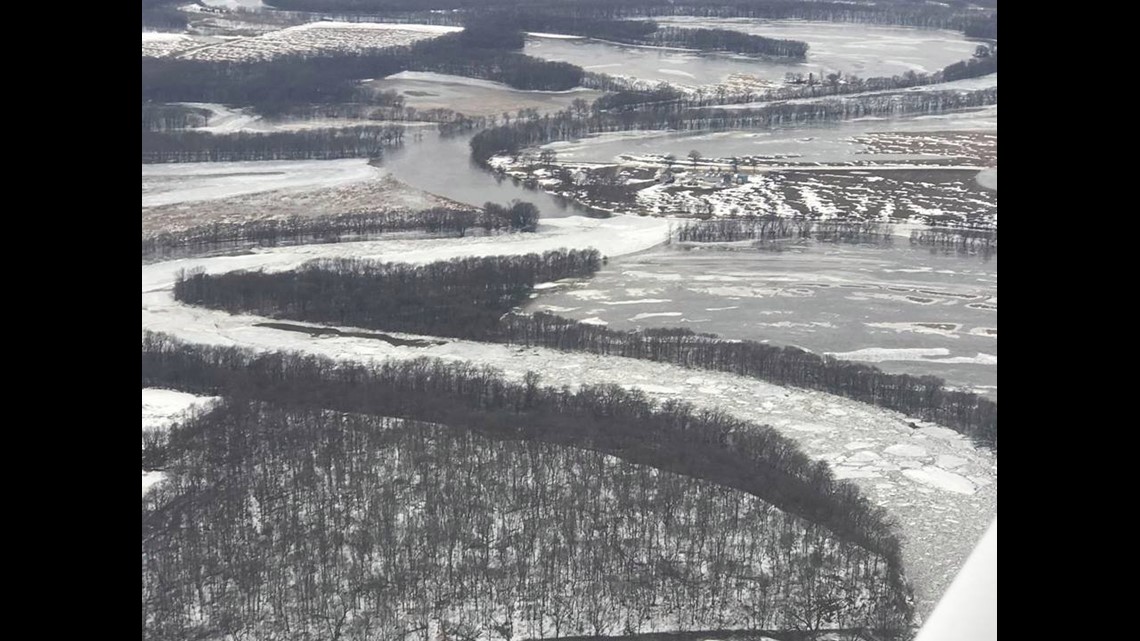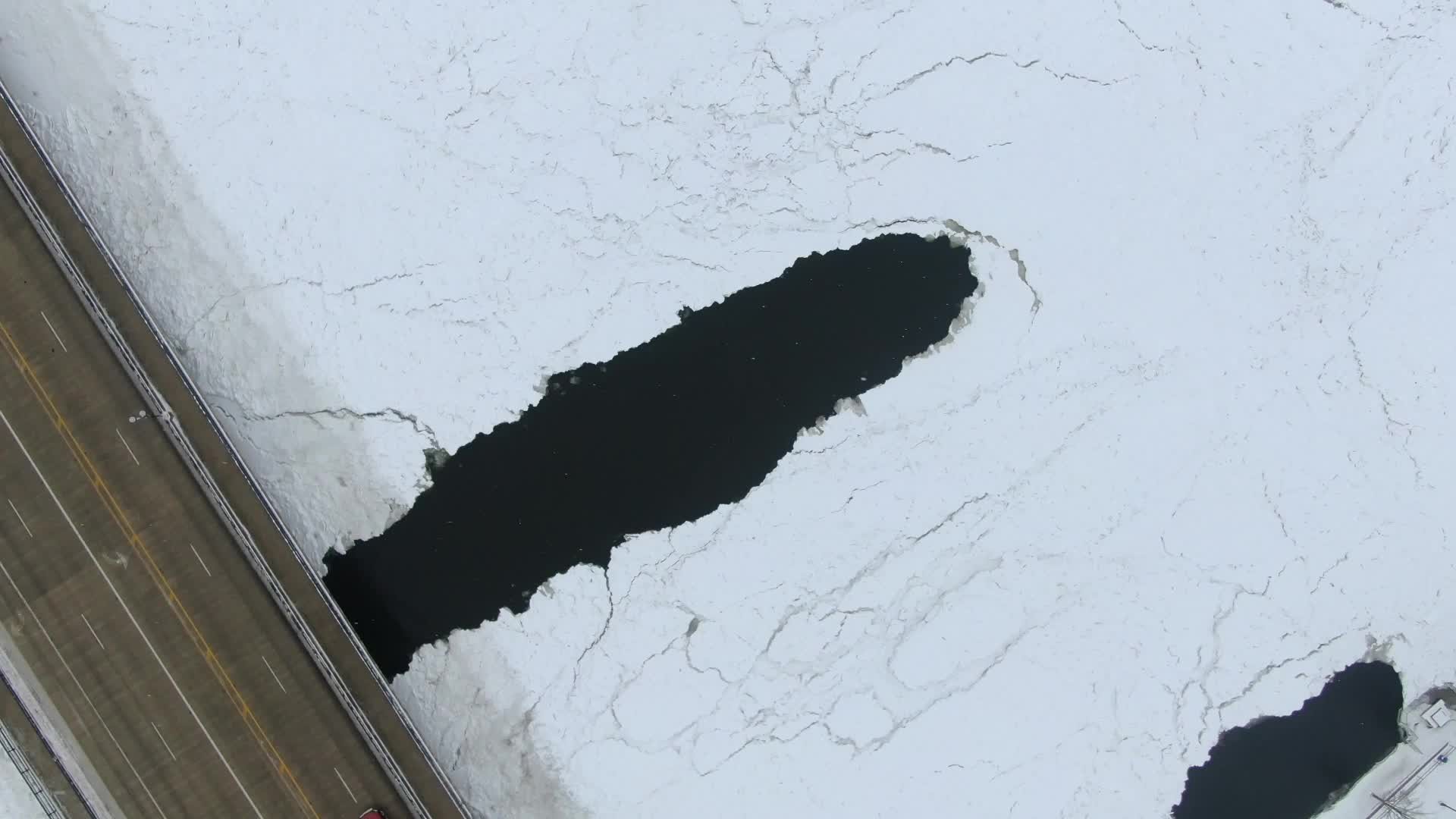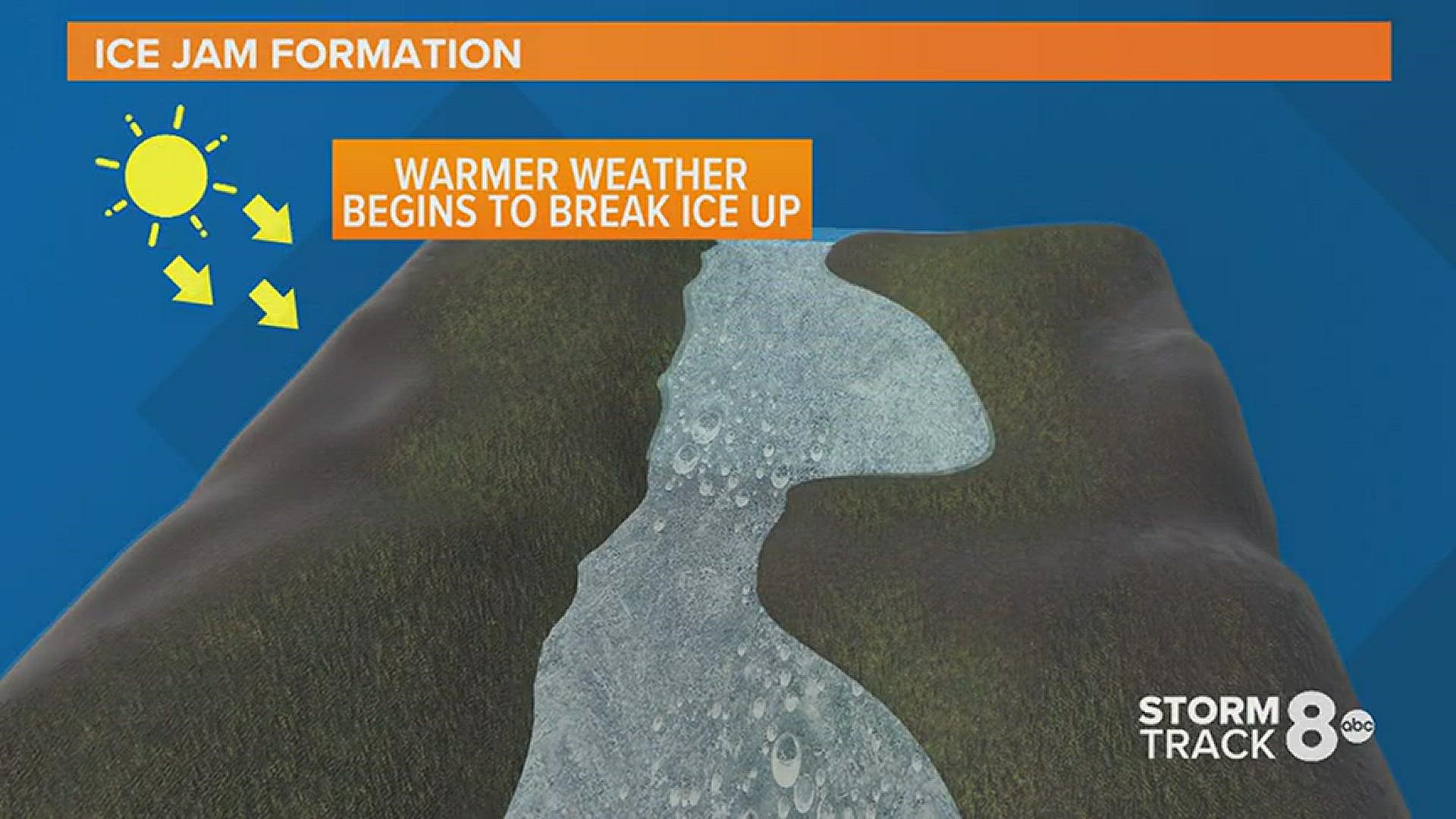MOLINE, Ill. — Freeze and thaw, rinse and repeat. Ice jam season started a little early this year in the Quad Cities.
Typically, late January into the month of February is when we start to get concerned with ice jams, especially on the Rock River. This year, however, we are already seeing some ice issues and we haven't even made it through the first full week of January!
During the period of December 23-27, temperatures rapidly fell below zero at night, and barely maintained single digits and teens during the day. This led to a quick freeze-up of many area rivers, creeks and streams. The Rock River became ice covered by Christmas Day weekend as wind chills dropped to around -30° at times.
The average temperature so far for January is running 14.8 degrees above normal, giving the sheets of ice plenty of opportunity to begin breaking up and attempting to move with the water flow.
The Rock River is particularly vulnerable to ice jams thanks in part to its more curvy structure, especially in Whiteside County near Prophetstown and Erie. These sharp curves force the ice to dig into the shoreline as it weaves through the terrain, getting caught and eventually backing up the flow of additional ice upstream. This backup also prevents water from moving downstream, causing a rapid rise upstream from the ice jam itself. The Mississippi River is less vulnerable to ice jams due in part to it's larger width and less curvy layout.


Chunks of ice can also become lodged under bridges and overpasses, causing a quick buildup of ice followed by rapidly rising water levels.
The National Weather Service will typically issue a Flood Watch for areas that could see potential ice jam activity in the near future. A Flood Warning is issued when an ice jam causing flooding has been confirmed. If you live along the Rock River, always be prepared to evacuate at a moment's notice. In the past, events like this have led to a very quick rise in water levels.
You can track all of our area river levels using the National Weather Service River Forecast Tool.


